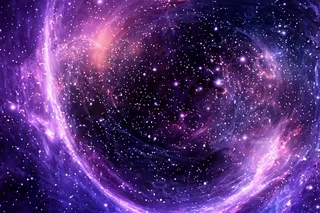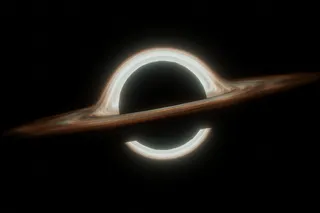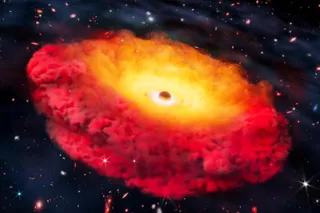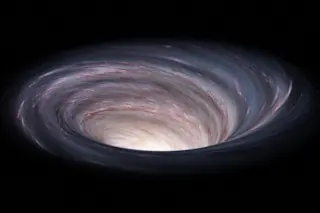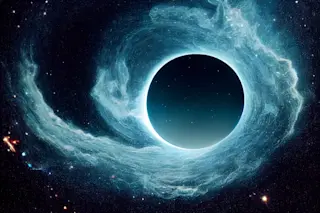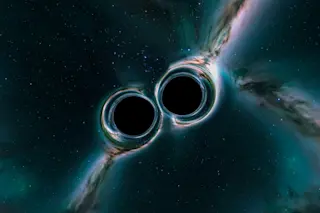It takes a special kind of personality to argue passionately about the nature of objects that are hundreds of trillions of miles away, impossible to see and impossible even to describe using the known laws of physics. And yet, in the woolly world of modern astrophysics, such personalities are not in short supply. Lately they’ve engaged in a full-on debate about the nature of black holes, with some of the most fundamental notions about these strange objects suddenly under attack. Despite what you saw in the movie Interstellar, black holes may not be black, and they may not be holes, either. Some theorists argue that the event horizon of a black hole — the boundary where light, matter and Matthew McConaughey vanish from our universe — is actually a brilliant, blistering inferno. Others propose that black holes are more properly described as “gray holes” with fuzzy, leaky outer boundaries. And ...
No Such Thing as a Black Hole?
New theories question just about everything we thought we knew about nature’s bottomless pits.
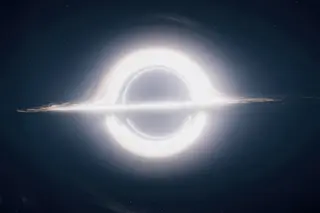
Newsletter
Sign up for our email newsletter for the latest science news
More on Discover
Stay Curious
SubscribeTo The Magazine
Save up to 40% off the cover price when you subscribe to Discover magazine.
Subscribe

